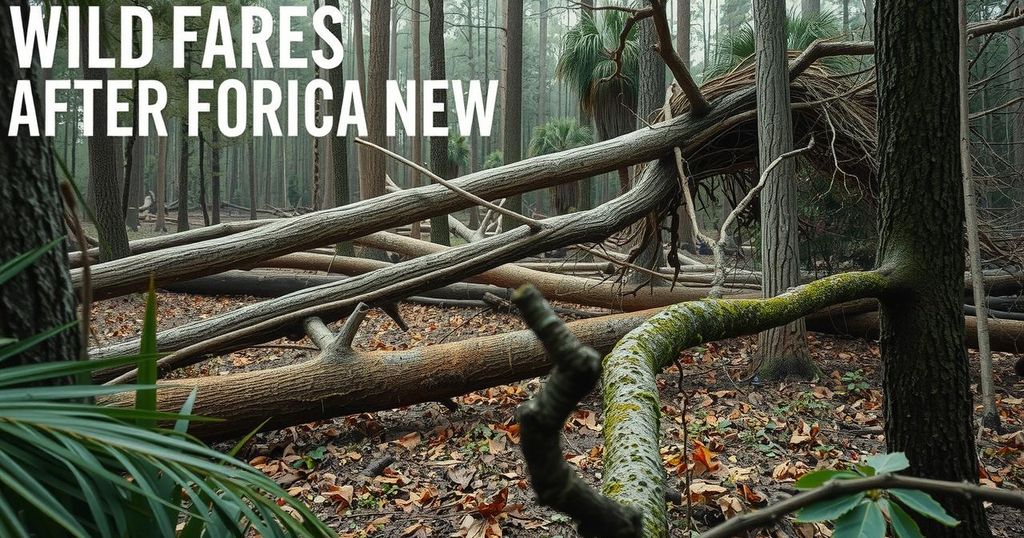The Long-Term Effects of Hurricane Helene: The Increased Risk of Wildfires

Hurricane Helene caused extensive damage in parts of Southwest Virginia and may increase wildfire risks due to downed vegetation. Michele Steinberg of the National Fire Protection Association discussed the dual role of fire in ecosystems and the challenges posed by increased fuel loads from Hurricane Helene. Residents are urged to stay informed about wildfire conditions and take action to minimize risks, as the 2025 hurricane season is predicted to be above average.
Hurricane Helene struck parts of Southwest Virginia, Northeast Tennessee, and Western North Carolina last fall, causing significant destruction. Months later, communities continue to clean up, and experts warn that the effects may lead to an increased risk of wildfires in the region. Michele Steinberg, Wildfire Division Director at the National Fire Protection Association, indicated that the downed vegetation from Helene contributes to wildfire risks by altering environmental patterns.
Steinberg explains that while some fires can be beneficial to ecosystems by returning nutrients to the soil and promoting healthy growth, the aftermath of such storms can dangerously increase the likelihood of destructive wildfires. The spring and fall seasons typically present optimal conditions for wildfire occurrences, characterized by dry fuel sources, heat, and wind—ingredients that create the right environment for fire outbreaks.
In the absence of proper natural regeneration, materials such as fallen trees and shrubs from Helene constitute a dangerous fuel load for potential wildfires. Steinberg warns that wildfires resulting from accumulated dead vegetation will be more intense, posing additional challenges for emergency services tasked with managing these fires in the wake of a hurricane.
Communities affected by Helene were alerted early to the likelihood of elevated wildfire risks due to the extensive debris left in the storm’s wake. Steinberg mentioned that Western North Carolina has already faced some of its most severe wildfires in over a decade this spring, with historical evidence supporting the heightened risk.
Residents can mitigate risks by educating themselves on wildfire conditions, particularly understanding warnings such as the “Red Flag Warning” from weather agencies that indicate high wildfire potential. Homeowners are encouraged to keep their properties free from accumulating leaves and debris near structures, as these materials can catch fire from embers carried by the wind.
The National Fire Protection Association provides resources for communities to prepare for wildfire season. Additionally, Virginia has neighborhoods participating in the Firewise USA program to collaboratively maintain safe surroundings.
The Atlantic hurricane season is projected to be above average in 2025, with forecasts from Colorado State University predicting 17 named storms, including nine hurricanes and four major hurricanes. Levi Silvers, involved in the projection, cites warmer sea-surface temperatures and a weak La Niña as contributing factors.
The hurricane season, lasting from June 1 through November 30, will be closely monitored given these predictions. This information was shared in the CommonWx newsletter from Radio IQ, ensuring residents stay informed about weather conditions and potential hazards.
In conclusion, Hurricane Helene’s impact continues to affect communities in Southwest Virginia and surrounding areas, increasing the risk of wildfires due to the large amount of downed vegetation. Awareness of wildfire conditions, preventive measures for homeowners, and community preparedness initiatives are crucial for mitigating this risk. Furthermore, the expectation of an above-average Atlantic hurricane season emphasizes the necessity of ongoing vigilance and preparedness for potential natural disasters.
Original Source: www.wvtf.org







